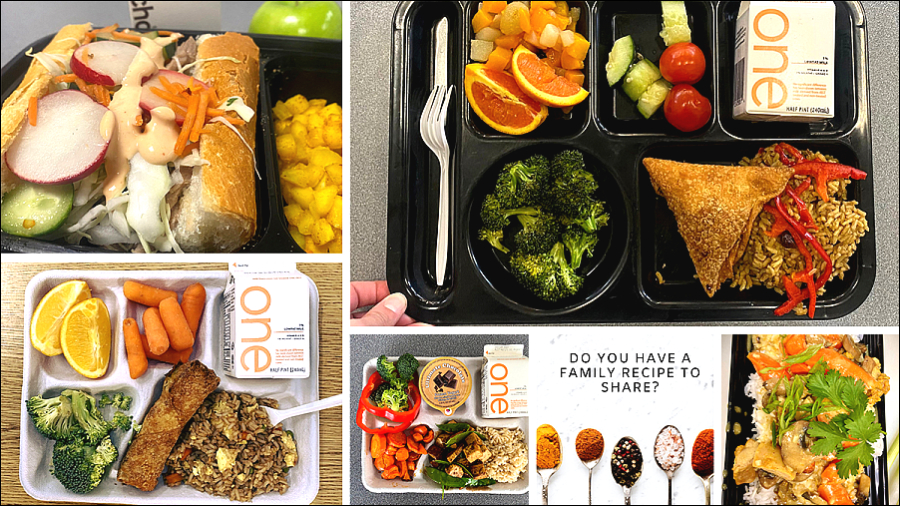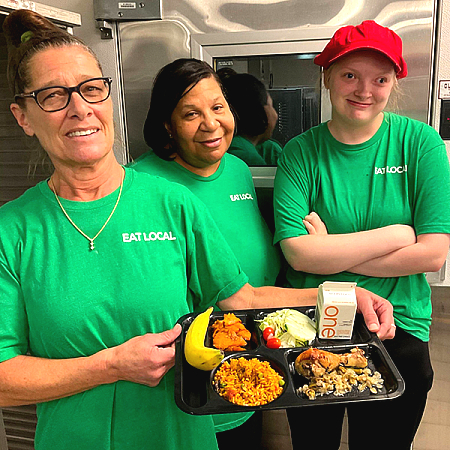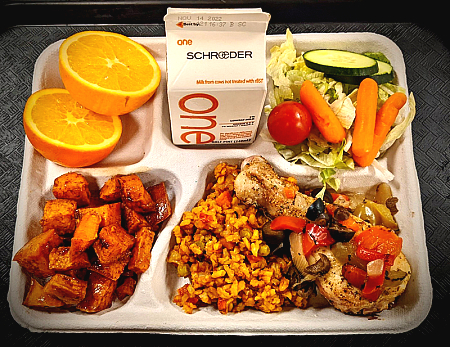Roseville Area Schools in Minnesota leverages the diverse ethnic and cultural backgrounds of their students to create meals from several countries and continents. With more than 30 languages spoken at home, the students and meals served in Roseville Area Schools represent the many varied populations including Latinx, Somali, Hmong, and more. Their cultures inspire meals like jollof rice, sambusas, bariis iskukaris (Somali-style rice), chicken yassa, bahn mi (Vietnamese sandwiches), pulled pork carnitas, and there is currently a Hmong chicken curry in development. The school nutrition team continues to learn how to maintain the integrity of dishes while meeting USDA guidelines for specific food groups. Feedback from students, families, and often local chefs informs this entire process.

The Roseville Area school nutrition team acknowledges the needs of all students and carefully thinks through how to create an inclusive environment for all students. While some schools would have eliminated pork from their menus, Roseville's school nutrition team recognized that pork is a central protein to some of their student populations and create an environment that is respectful of everyone's cultural and religious backgrounds. To eliminate the chance of cross-contamination, students who abstain from pork receive a sandwich alternative, and the labor force is shifted to accommodate cooks who cannot touch pork.
To move back to scratch cooking, Minnesota Thursday is an initiative where Roseville’s school nutrition team has an all-local menu with every meal scratch cooked. Through existing relationships with local farmers and producers, Roseville Area Schools has aimed to reduce supply chain challenges like those experienced by other schools when sourcing some foods and brands in recent school years. Roseville’s school nutrition team has also tried to upscale vegetables by using herbs and spices and providing alternatives to steamed veggies. Through a partnership with a local food hub and cooperative warehouse, they make local purchases for their farm-to-school program that supplies their all-you-care-to-eat fresh veggie and fruit bar. They've also moved to serve canned fruit and fresh fruit every day. They've found this helpful to their bottom line and appealing to students and parents. Many of their students have difficulty eating and biting fresh fruits and vegetables, so this appeals to the different teeth and orthodontic stages of their students.

| 
|

